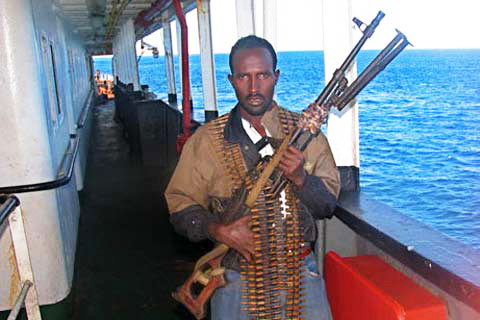
Due to the recent epidemic of piracy that has caught hold of the Indian Ocean, these waters are no longer safe for even the saltiest seafarers. While pirates themselves provide a direct threat, they also are the cause of an indirect one– merchant vessels firing upon innocent civilians who they mistake for pirates.
India has close to two million fisherman, who operate over a quarter-million small boats to earn their living. Additionally, many Indians sail on larger vessels all over the world as sailors in the shipping industry. While the risk of piracy is understandable, the risk of being mistaken for pirates can be doubly frustrating.
Because there is no definite international law regarding when ships are permitted to fire in self-defense, many costly mistakes have been made by legitimately-worried, but trigger-happy sailors. As this largely applies to vessels sailing west towards Africa across the Indian ocean, the fears are also justified to the east.
China has recently issued orders to some of its provincial patrol boats, permitting them to fire-upon, detain and board vessels that it deems to be acting illegally in its waters. There are two worries here: China has a very vague and aggressive definition of what constitutes their maritime borders, and they also have a vague definition of what it means to be acting illegally in said waters. As nearly half of India’s maritime trade passes through the South China sea, this is a worrisome development indeed.
But while fears of overt violence in the South China Sea have yet to come into actuality, there have already been fatal incidents in the Indian Ocean. Earlier this year, two Italian Marines fired upon a small skiff they believed to be operated by pirates. Tragically, it was an innocent fishing vessel, and two Indian fishermen lost their lives. Although the marines were successfully detained by Indian authorities, it does not restore the lives lost.
Even more recently, a United States Navy oil tanker opened fire on a tuna trawler flying a United Arab Emirates flag. As is often the case, one of the members of the international crew was Indian, and he was killed by the fire. The U.S. ship allegedly opened fire and shot several hundreds of rounds of ammunition at the ship before ceasing. Authorities from the ship maintain that they warned the boat of their impending action and offered their condolences for the incident.
Fortunately, steps are being taken to put a stop to these accidents. The United Kingdom has recently clarified its rules of engagement. While they do permit vessels to fire upon pirate ships, they warn them to do so only as a last resort, and to avoid initiating hostilities unless the threat is imminent and unavoidable.